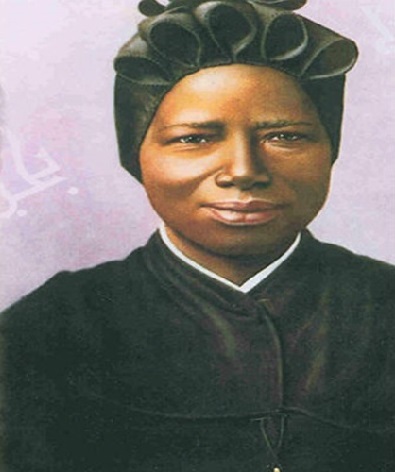The Last Will Be the First
Bakhita, her name means ‘the fortunate’. That is not the name her parents gave her. She was snatched as child from her parents by Arab slave traders. The trauma she suffered as a slave made her forget her own name. Bakhita, the name the slave masters gave her, even as they tortured her terribly, was proved true and fitting for her life by God. You wouldn’t call Bakhita lucky who was sold and bought five times before completing her teenage years, in the latter half of nineteenth century. But her life was like the people hired by the land owner in the parable told by Jesus. In 1888, when she ended up with the Canossian Sisters in Italy, at the age of nineteen or twenty, it was like waiting for the Lord’s call to his vineyard till the 11th hour. She who was forcefully made a Muslim by her captors, became a Catholic. She eventually joined the Canossian Sisters. Most of the Sisters of the order were cradle Catholics, and can be likened to the people who were hired in early hours of the day according to the parable of workers hired for the vineyard. Those who were hired earlier considered luckier and expected greater reward compared to the last comers. Bakhita, though a late comer to the faith and the least expected in a religious congregation with mostly Europeans, was rewarded by the Lord. Our Lord rewarded her with the fruits of the Kingdom of God, peace and joy in full measure. During the Second World War (1939–1945) she shared the fears and hopes of the town people, who considered her a saint and felt protected by her mere presence. Bombs did not spare Schio, but the war passed without a single casualty. The Lord did not make her wait till her death to reward her with the fruits of the Kingdom. In her earthly life itself she could show forth the joy and peace of the Kingdom of God. In the life of Bakhita we see the last becoming the first in the Kingdom. It is human nature to complain about a miserable past life and when you feel left out by humanity and God. But Bakhita’s response to her past must be eye opening for us. A young student once asked Bakhita: “What would you do, if you were to meet your captors?” Without hesitation she responded: “If I were to meet those who kidnapped me, and even those who tortured me, I would kneel and kiss their hands. For, if these things had not happened, I would not have been a Christian and a religious today.” Bakhita was canonised as a saint on 1 October 2000.
Like Bakhita, perhaps you can recall a moment of great need, when you were at the receiving end of someone’s generosity, a time when you recognised you had done nothing to ‘deserve’ that response. The life of Saint Bakhita and the parable of the land owner hiring workers has the message that God’s love is a free gift and not earned. Recall moments when you were particularly conscious of the gift that God’s love is to you. The parable we reflect on today tells us that where love is involved, it is never too late. Can you recall times when you got a positive response after taking action when you thought it was “too late”?

